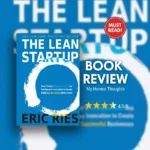- क्यों यह Book इतनी Popular है?
- Book का Main Message क्या है?
- Chapter 1: Don’t Try (कोशिश मत करो)
- मेरा Personal Experience
- 💖 You Might Also Like
- Chapter 2: Happiness is a Problem (खुशी एक Problem है)
- Buddha का Philosophy
- How to Choose Better Problems
- Chapter 3: You Are Not Special (तुम Special नहीं हो)
- Entitlement की Problem
- Benefits of Being “Ordinary”
- Chapter 4: The Value of Suffering (दुख का महत्व)
- Two Types of Suffering
- My Personal Example
- ✨ More Stories for You
- Chapter 5: You Are Always Choosing (तुम हमेशा Choose कर रहे हो)
- Responsibility vs Fault
- Victim Mentality से कैसे बाहर निकलें
- Chapter 6: You’re Wrong About Everything (तुम हर चीज़ के बारे में गलत हो)
- Growth Mindset vs Fixed Mindset
- How to Develop Uncertainty
- Chapter 7: Failure is the Way Forward (Failure ही आगे का रास्ता है)
- मेरे Failures से Lessons
- How to Fail Better
- 🌟 Don't Miss These Posts
- Chapter 8: The Importance of Saying No (ना कहने का महत्व)
- Why We Can’t Say No
- Benefits of Saying No
- How to Say No Effectively
- Chapter 9: And Then You Die (और फिर तुम मर जाओगे)
- Legacy vs Immortality
- How Death Awareness Helps
- मुख्य Lessons (Key Takeaways)
- 1. Choose Your Battles
- 2. Embrace Problems
- 3. Take Responsibility
- 4. Stay Humble
- 5. Fail Forward
- Book को Real Life में कैसे Apply करें
- Morning Routine
- Decision Making
- Relationships
- Work/Career
- Frequently Asked Questions (FAQs)
- क्या यह book negative thinking promote करती है?
- क्या मैं सच में हर चीज़ की परवाह बंद कर दूं?
- यह philosophy कितनी practical है?
- क्या यह book relationships के लिए harmful है?
- Depression के दौरान यह book पढ़नी चाहिए?
- Final Thoughts
यार, क्या तुमने कभी सोचा है कि जिंदगी में इतना stress क्यों है?
क्यों हर छोटी बात पर हम परेशान हो जाते हैं?
Mark Manson की “The Subtle Art of Not Giving a F*ck” इन सब सवालों का जवाब देती है।
मैं इस book को पढ़कर सच में shocked था।
यह book हमारे society के fake positivity को expose करती है।
क्यों यह Book इतनी Popular है?
देखो भाई, हम सभी को लगता है कि खुशी पाने के लिए हमें हमेशा positive रहना चाहिए।
लेकिन Mark Manson कहता है – यह बकवास है।
Real life में problems होती हैं।
Pain होता है।
Struggle होती है।
और यही normal है।
Book का Main Message क्या है?
Main point यह है:
- हर चीज़ की परवाह मत करो
- सिर्फ important चीजों को priority दो
- Problems को accept करो, ignore नहीं
Chapter 1: Don’t Try (कोशिश मत करो)
यहाँ Manson एक shocking example देता है।
Charles Bukowski का।
यह आदमी alcoholic था, failures से भरपूर।
लेकिन उसकी grave stone पर लिखा है “Don’t Try”.
Why?
क्योंकि जब तुम desperately कुछ चाहते हो, तुम fail करते हो।
मेरा Personal Experience
मैंने भी यह feel किया है।
जब मैं बहुत ज्यादा try करता था popular बनने के लिए, लोग मुझसे दूर भागते थे।
लेकिन जब मैंने naturally behave करना शुरू किया, friends automatically बने।
Key Takeaway:
- Desperation repels success
- Natural confidence attracts opportunities
- Stop trying so hard
💖 You Might Also Like
Chapter 2: Happiness is a Problem (खुशी एक Problem है)
यह chapter mind-blowing है।
Manson कहता है कि हमारा brain problems solve करने के लिए बना है।
जब problems नहीं होतीं, brain नई problems create करता है।
Buddha का Philosophy
Buddha ने 2500 साल पहले यही कहा था।
Life = Suffering.
लेकिन हमारा modern society इसे hide करने की कोशिश करता है।
Reality Check:
- Problems never end
- New level, new problems
- Happiness comes from solving meaningful problems
How to Choose Better Problems
सभी problems equal नहीं होतीं।
कुछ problems worth solving हैं।
कुछ waste of time हैं।
Good Problems:
- Health improvement
- Skill development
- Relationship building
Bad Problems:
- Social media validation
- Materialistic competition
- Other people’s opinions
Chapter 3: You Are Not Special (तुम Special नहीं हो)
यह brutal honesty है।
हमारी generation को बचपन से सिखाया गया कि “तुम special हो”.
लेकिन reality यह है – most people are average.
And that’s okay!
Entitlement की Problem
जब तुम think करते हो कि तुम special हो:
- तुम्हें लगता है कि तुम्हें बिना effort के success मिलनी चाहिए
- failures को accept नहीं कर पाते
- blame game खेलते हो
मेरी Story: मैं भी पहले सोचता था कि मैं automatically successful हो जाऊंगा।
लेकिन जब मैंने accept किया कि मैं average हूँ, तब मैंने actually improve करना शुरू किया।
Benefits of Being “Ordinary”
- कम pressure
- realistic expectations
- actual growth
- better relationships
Chapter 4: The Value of Suffering (दुख का महत्व)
यहाँ Manson explain करता है कि suffering inevitable है।
लेकिन हम choose कर सकते हैं कि किस चीज़ के लिए suffer करना है।
Two Types of Suffering
Meaningful Suffering:
- Exercise के लिए muscle pain
- Business के लिए sleepless nights
- Relationship के लिए compromise
Meaningless Suffering:
- Drama के लिए stress
- Gossip के लिए energy waste
- Fake problems के लिए worry
My Personal Example
जब मैं gym जाता था, muscles में pain होता था।
लेकिन यह pain meaningful था क्योंकि मैं stronger बन रहा था।
Compare करो social media पर likes न मिलने के pain से।
Bilkul meaningless!
✨ More Stories for You
Chapter 5: You Are Always Choosing (तुम हमेशा Choose कर रहे हो)
यह chapter responsibility के बारे में है।
Manson कहता है कि हम अपनी हर reaction choose करते हैं।
Even अगर situation हमारे control में नहीं है।
Responsibility vs Fault
Fault = who caused it Responsibility = who will deal with it
Example: अगर कोई तुम्हें गाली देता है:
- Fault = उस person का
- Responsibility = तुम्हारी (कि कैसे react करना है)
Victim Mentality से कैसे बाहर निकलें
Step 1: Accept that you always have choices
Step 2: Stop blaming circumstances
Step 3: Focus on what you can control
Step 4: Take action
Real Life Application: जब मेरी job चली गई, मैं पहले blame करता रहा economy को।
फिर मैंने realize किया कि यह मेरी responsibility है नई skills सीखना।
Result = better career opportunities.
Chapter 6: You’re Wrong About Everything (तुम हर चीज़ के बारे में गलत हो)
Humility का lesson है यह।
हमारे most beliefs wrong या incomplete हैं।
इसलिए open mind रखना जरूरी है।
Growth Mindset vs Fixed Mindset
Fixed Mindset:
- “मैं सही हूँ”
- “मुझे पहले से सब पता है”
- Change resistant
Growth Mindset:
- “शायद मैं गलत हूँ”
- “सीखने को बहुत कुछ है”
- Change adaptable
How to Develop Uncertainty
- Ask questions instead of giving statements
- Listen more than you speak
- Admit when you don’t know something
- Be willing to change your opinion
Chapter 7: Failure is the Way Forward (Failure ही आगे का रास्ता है)
Society में failure को negative देखा जाता है।
लेकिन Manson कहता है – failure is feedback.
मेरे Failures से Lessons
Business Failure #1: Product बनाया, कोई नहीं खरीदा। Learning = market research पहले करो।
Relationship Failure #1:
Too needy behavior। Learning = independence maintain करो।
Fitness Failure #1: Extreme diet, couldn’t sustain। Learning = gradual changes बेहतर हैं।
How to Fail Better
1. Fail Fast
- जल्दी try करो
- जल्दी learn करो
- जल्दी pivot करो
2. Fail Cheap
- कम resources risk करो
- Small experiments करो
- Learn before big investment
3. Fail Forward
- हर failure से lesson निकालो
- Same mistake repeat न करो
- Data collect करो
🌟 Don't Miss These Posts
Chapter 8: The Importance of Saying No (ना कहने का महत्व)
यह chapter boundaries के बारे में है।
जब तुम हर चीज़ को हाँ कहते हो, तुम actually कुछ भी properly नहीं करते।
Why We Can’t Say No
- People pleasing tendency
- FOMO (Fear of Missing Out)
- Low self-worth
- Conflict avoidance
Benefits of Saying No
More Focus: जब तुम कम चीजों पर focus करते हो, better results आते हैं।
Better Relationships: Clear boundaries healthier relationships बनाती हैं।
Less Stress:
Overcommitment का stress कम होता है।
Higher Quality Work: Energy focused होने से quality improve होती है।
How to Say No Effectively
1. Be Direct “Sorry, I can’t do this.”
2. Don’t Over-Explain Long justifications weak लगते हैं।
3. Offer Alternatives “I can’t do X, but I can help with Y.”
4. Practice छोटी चीजों से start करो।
Chapter 9: And Then You Die (और फिर तुम मर जाओगे)
Death awareness life को perspective देती है।
Manson कहता है कि death को remember रखने से priorities clear हो जाती हैं।
Legacy vs Immortality
हम सभी चाहते हैं कि हमें याद रखा जाए।
लेकिन reality यह है कि eventually सब भूल जाते हैं।
So what matters?
Present moment में meaningful relationships और experiences।
How Death Awareness Helps
- Petty problems छोटे लगते हैं
- Important relationships पर focus बढ़ता है
- Time waste नहीं करते meaningless activities में
- Gratitude increase होती है
मुख्य Lessons (Key Takeaways)
1. Choose Your Battles
हर fight लड़ने की जरूरत नहीं। Important battles choose करो।
2. Embrace Problems
Problems से भागो मत। Meaningful problems solve करो।
3. Take Responsibility
Blame game से कुछ नहीं मिलता। अपनी responsibility लो।
4. Stay Humble
तुम हमेशा कुछ न कुछ गलत समझ रहे हो। Learning mode में रहो।
5. Fail Forward
Failure से डरो मत। उससे सीखो।
Book को Real Life में कैसे Apply करें
Morning Routine
- Wake up में यह ask करो: “आज किस 1-2 important चीजों पर focus करूंगा?”
- Unimportant notifications off करो
Decision Making
जब भी कोई decision लेना हो:
- क्या यह really matter करता है?
- 5 साल बाद क्या इसकी value होगी?
- क्या मैं सही reasons के लिए यह कर रहा हूँ?
Relationships
- Quality over quantity
- Clear boundaries set करो
- Honest communication रखो
- Drama avoid करो
Work/Career
- Meaningful work choose करो
- Short-term discomfort के लिए ready रहो
- Skills develop करो, not just degrees collect
Frequently Asked Questions (FAQs)
क्या यह book negative thinking promote करती है?
Bilkul नहीं। यह realistic thinking promote करती है। Fake positivity को challenge करती है।
क्या मैं सच में हर चीज़ की परवाह बंद कर दूं?
नहीं। Selective caring की बात है। Important चीजों की परवाह करो, unimportant की नहीं।
यह philosophy कितनी practical है?
बहुत practical। Daily life में immediately apply कर सकते हो।
क्या यह book relationships के लिए harmful है?
उल्टा। Healthy boundaries better relationships बनाती हैं।
Depression के दौरान यह book पढ़नी चाहिए?
Professional help के साथ-साथ यह perspective helpful हो सकती है।
Final Thoughts
The Subtle Art बुक समरी हिंदी में मैंने जो भी share किया, यह सब practical wisdom है।
यह book magic formula नहीं देती।
लेकिन realistic approach देती है जिंदगी को handle करने के लिए।
Main message simple है: Focus on what truly matters. Let go of the rest.
मैं personally इस book से बहुत influence हुआ हूँ।
और मैं sure हूँ कि अगर तुम इन principles को apply करोगे, तो तुम्हारी भी जिंदगी में positive changes आएंगे।
Remember: Life challenging है। Problems होंगी। लेकिन तुम choose कर सकते हो कि कौन सी problems worth solving हैं।
The Subtle Art बुक समरी हिंदी पढ़ने के लिए thanks!
अब जाकर इन lessons को अपनी real life में implement करो।
Stay real, stay focused!

















